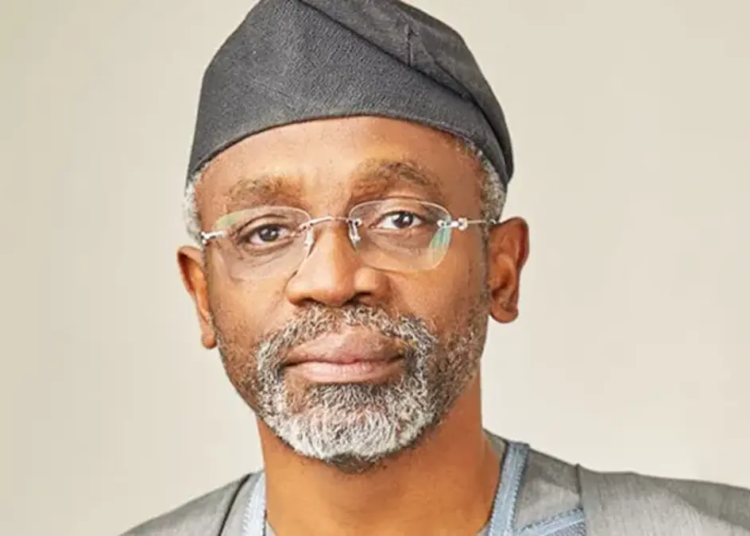Like in every transition from one regime to the other where those coming after inherit the assets and liabilities of those they take over from, the 10th House of Representatives will be inheriting most of the unfinished business of the 9th House.
The 9th House which came into being on June 11, 2019 formally bowed out on Wednesday, June 7, 2023 while the 10th session of the Green Chamber will be birthed next week Tuesday, June 13.
In blowing its trumpet very well as the saying goes, the last session of House scored itself very high even more than all in Nigeria’s history.
Giving what looks like its stewardship in the last four years at the valedictory session, the Chairman, House Committee on Rules and Business, Abubakar Fulata said this was the “most productive of all assemblies in the history of the National Assembly.”
Fulata itemised that the 9th House has passed a total of 510 bills and 2000 motions. The 510 bills are out of the 2232 processed with 52 from the executive, 163 from the Senate while 2017 were private members bills.
He said: “Out of these figures still, bills awaiting second reading are 1197. Bills refered to committees, 581. Bills reported by the Committees 275.
“Bills pending in the committee 308. Bills within the Committee of the Whole, 106. Bills laid on table awaiting consideration, 64. Bill far passed 510. Bills killed (negatived) 13 and bills withdrawn by their sponsors, 5.
“The House also passed 2000 motions in total. Mr Speaker, all these could not have been achieved without your able leadership and that of your Deputy, Ahmed Idris Wase who is also Chairman, Committee of the Whole.”
That may appear laudable especially with hallmark legislations like the Petroleum Industry Act, Deep Offshore and Inland Basin Production Sharing Contracts Act, the Electoral Act, 2022, Companies and Allied Act (CAMA), amongst others.
This as compared to the predecessor, the 8th House which passed only 382 as well a 1413 motions sponsored and their work on those major legislations did not get full status of law due to the withhold of presidential assent for several reasons.
However, there are a lot of unfinished business which the 9th Assembly itself particularly want to the 10th session to continue with.
For instance, coming in form of recommendation, the out gone Speaker, Femi Gbajabiamila to ensure the removal of some of the constitutional barriers that have long stood in the way of women’s full and unhindered participation in the politics, governance and economy of the country.
During the Constitution Review in 2022, the House voted against bills seeking to expansion of the Scope of Citizenship by Registration, 35% Affirmative Action for Women in Political Party Administration and Qualification to become an Indigene of a State in Nigeria to favour women socio-political advancement.
Apparently, Gbajabiamila said: “Unfortunately, we did not succeed in removing some of the constitutional barriers that have long stood in the way of women’s full and unhindered participation in the politics, governance and economy of our nation.
“This issue must continue to be at the fore of our national conversations. I hope the 10th House of Representatives will take up the mantle and do better than we did.”
Also, on the day of it exit, the 9th House deferred the report of Committee on Capital Market and Institutions chaired by Babangida Ibrahim due to its inconclusiveness and recommended that the next Assembly continues with it.
The report was on the investigation of the “Rising Value of Unclaimed Dividends, Unremitted withholding Tax on Dividend and attendant Effects on the Nation’s Economy”
The investigation had commenced in 2020 during which the House said at the end of the year, there would be about N200 billion with the Committee’s noting that the development was worrisome.
Ibrahim had said the unclaimed dividend was a huge challenge, as it has adverse implication on the economic development of the country, especially as it affects investors confidence in the capital market.
Similarly, on this day, a report of the House Committee on Aids, Loans and Debt Management was approved but the job was however not complete and the 10th House was asked to continue with its findings.
The report was on “Issuance of Promissory Notes for the settlement of Top Priority Judgment Debt and General Judgment incurred by the Federal Ministries, Departments and Agencies (MDAs).
“The Promissory Note Programme and Bond Issuance to settle outstanding claims and liabilities of MDA’s involved in the sum of USD566,754,754,584.31, GB98,526.17 and N226,281,801,881.64.”
Also, the House after the consideration of the report of Ad-hoc Committee that investigated the Alleged Loss of over $2.4 Billion in revenue from the Illegal sale of 48 Million barrels of Crude Oil in 2015 Including Crude Oil Exports from 2014 to date recommended that:
“House Committee on petroleum resources (upstream) of the 10th assembly should prevail on the Ministry of Petroleum Resources, Nigerian Upstream Petroleum Upstream Regulatory Authority, Nigerian National Petroleum Company, Nigeria Extractive Industries Transparency Index and other government related entities to explore the production of a harmonised, central and regularly updated record of Nigeria’s crude oil exports and proceeds and the committee should superintend the execution of same.
“A further investigation by related House committee in the 10th assembly should be conducted into the level of compliance to the payment of royalty and other related taxes by oil and gas companies including details of payments made to date;
“The 10th National Assembly consider the passage of a comprehensive whistleblower act as a priority in its legislative agenda as this will be of immense benefit to the country in the fight against corruption and will enhance Nigeria’s status in the global anti-corruption index.”
Furthermore, the House after the investigation on the State of Refineries in the Country on the Need to Ascertain the Actual Daily Consumption of Premium Motor Spirit (PMS) in Nigeria which showed that N11.35 trillion has been spent on the comatose Port Harcourt, Warri and Kaduna refineries and N5.9 trillion spent on subsidy payments from 2010-2020 left a behind a task for the 10th House.
According to the immediate past House; “the 10th National Assembly be mandated to carry out legislative oversight on the ongoing rehabilitation works to ensure that the nation achieves the expected processing capacity of 189,000 Barrels Per Day from the PHRC (54,000BSPD from OPHR+135,000BSPD from NPHR) and 75,000BSPD from WRPC plus whatever additional processing capacity from the Dangote Refinery, in order to meet the nation’s domestic needs for petroleum products by December, 2023.
“The 10th National Assembly should be further mandated to ensure continuous legislative oversight of the ongoing rehabilitation programme by the NNPCL at the Port Harcourt, Warri and Kaduna refineries in order to achieve project target timelines and rehabilitation of the refineries to bring them back to maximum refining capacity.”
Apart from the specific jobs which the 9th House wanted its successor to do, there so many unfurnished business, particularly probes which ended as academic exercise and effort in futility as lawyers would say.
Some of these include, alleged 22 million barrel crude oil theft probe, sequel to a motion adopted by the House in 2019; the Chinese loans probe; the probe of alleged financial malfeasance by the former Interim Management Committee (IMC) of the Niger Delta Development Commission (NDDC) put at N40 billion, the Power sector and Arms purchase probes.
Also, the House could not conclude work on the the bill for the establishment of an Electoral Offences Commission which many believed would have complemented the Electoral Act to ensure the last general election was credible.
This despite the promise by Gbajabiamila in post election remarks that the Electoral Offences Act was one area where lawmakers must take action before the culmination of the 9th House.
He said the Act would provide; “a system of vigorous prosecution and punishment of electoral offenders to serve as a deterrent to others in the future and help build confidence in our elections.”
In fact, the Independent National Electoral Commission (INEC) Chairman, Mahmood Yakubu begged the parliament to speed up legislative work on the Electoral Offences Commission and Tribunal bill.
Yakubu in his presentation at the Royal Institute of International Affairs, Chatham House in London January, ahead of the February/March polls expressed helplessness on prosecution of electoral offences.
>
>
> He said: “Although the commission is empowered by the Electoral Act to prosecute electoral offences, it lacks the power and resources to make arrests and thoroughly investigate electoral offences.”
>
> “Efforts at mitigating electoral malfeasance can only become effective with the arrest, prosecution, and sanctioning the ‘mother spiders’ to end their reign of impunity.
>
> “It is for this reason that INEC supports the establishment of the Electoral Offences Commission and Tribunal imbued with the responsibility of prosecuting electoral offences.”
>





